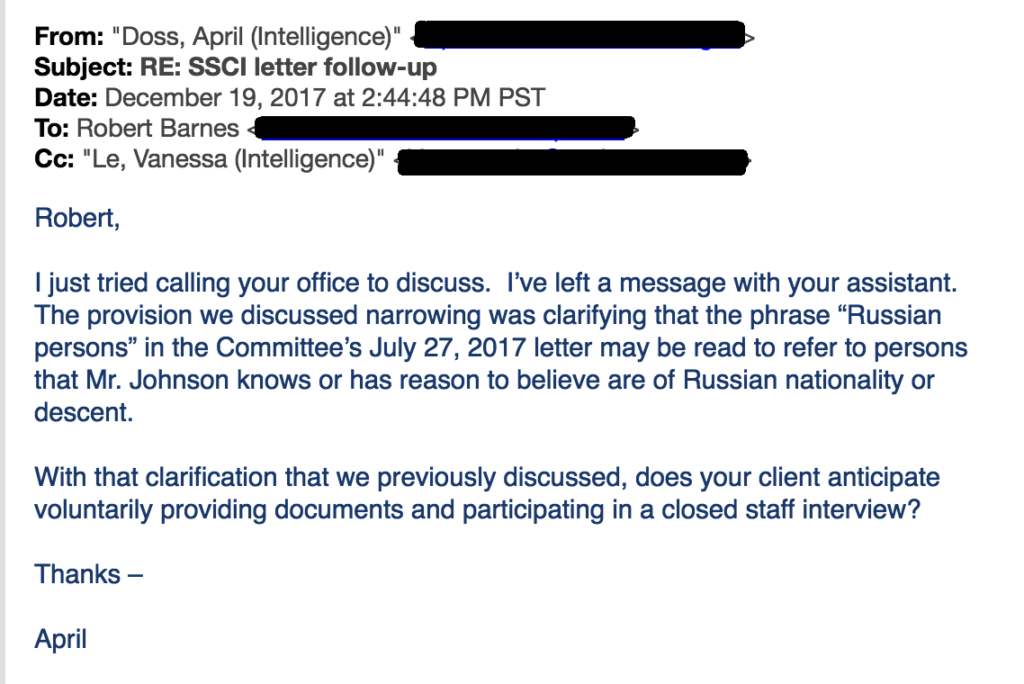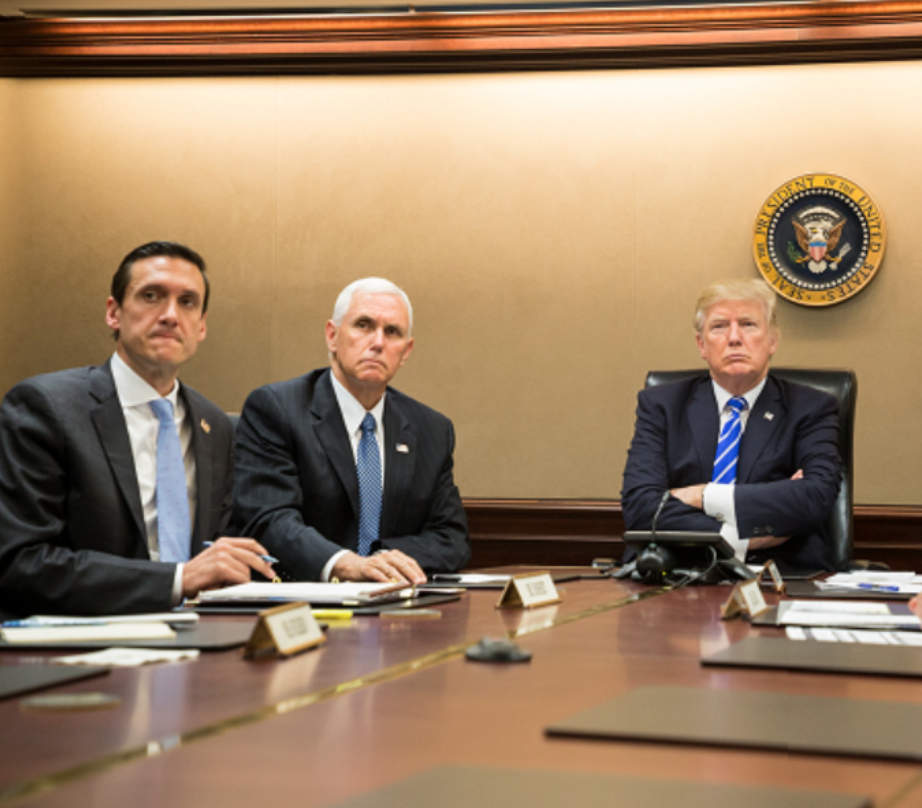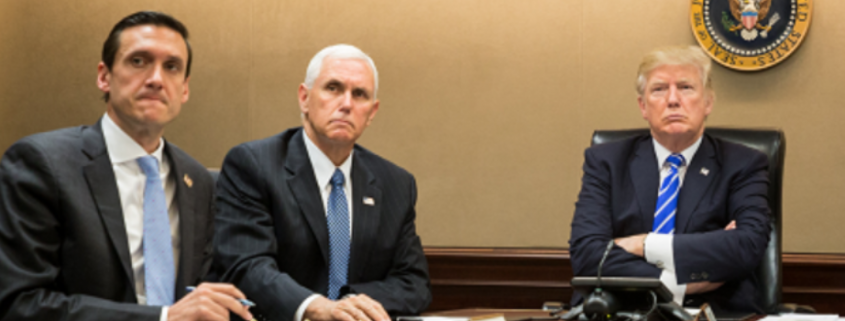Andrew McCarthy is one of the few right wingers I think all Trump opponents need to read. That’s true, partly, because his experience as a top NatSec prosecutor grants him an important perspective from which to assess the Trump investigation. And also, he engages in his own assessment of the evidence, as he has received it, even if he brings a far right bias to it.
McCarthy decides the dossier was key in the Page FISA order
Which is why defenders of the Christopher Steele dossier should read — and prepare to respond to — this column concluding (after some prior good faith consideration) that Democrats do have a problem with the way the dossier was used to justify an investigation against Trump. In it, McCarthy divorces his discussion from the known timeline and concludes that dossier is the true referent to Peter Strzok’s “insurance policy” text.
Was it the Steele dossier that so frightened the FBI? I think so.
[snip]
In sum, the FBI and DOJ were predisposed to believe the allegations in Steele’s dossier. Because of their confidence in Steele, because they were predisposed to believe his scandalous claims about Donald Trump, they made grossly inadequate efforts to verify his claims. Contrary to what I hoped would be the case, I’ve come to believe Steele’s claims were used to obtain FISA surveillance authority for an investigation of Trump.
McCarthy then points to this report (as I have) of Andrew McCabe pointing only to Carter Page’s trip to Moscow as validation of the dossier.
But when pressed to identify what in the salacious document the bureau had actually corroborated, the sources said, McCabe cited only the fact that Trump campaign adviser Carter Page had traveled to Moscow. Beyond that, investigators said, McCabe could not even say that the bureau had verified the dossier’s allegations about the specific meetings Page supposedly held in Moscow.
From that, McCarthy departs from prior points he has made about FBI’s corroboration of intelligence on FISA applications and ignores reports that FBI had a FISA order on Carter Page before the campaign (those reports admittedly might be disinformation, but then so might every single report pertaining to FISA orders) to suggest that the Steele dossier was the primary thing FBI used to get a FISA order on him (and, even more inaccurately, to justify the entire investigation). Here’s where McCarthy ends his piece.
The FBI always has information we do not know about. But given that Page has not been accused of a crime, and that the DOJ and FBI would have to have alleged some potential criminal activity to justify a FISA warrant targeting the former U.S. naval intelligence officer, it certainly seems likely that the Steele dossier was the source of this allegation. In conclusion, while there is a dearth of evidence to date that the Trump campaign colluded in Russia’s cyberespionage attack on the 2016 election, there is abundant evidence that the Obama administration colluded with the Clinton campaign to use the Steele dossier as a vehicle for court-authorized monitoring of the Trump campaign — and to fuel a pre-election media narrative that U.S. intelligence agencies believed Trump was scheming with Russia to lift sanctions if he were elected president.
McCarthy may well have a point. That is, I think his argument that DOJ’s predisposition to believe Steele may have led them to treat the dossier more credibly than it warranted. But as I said, to conclude the dossier is the main thing, he has to ignore reporting that Page had already had a FISA order (meaning FBI had already established, to the standard that FISC measures it, that Page might be involved in clandestine activity). He also doesn’t mention Chuck Grassley’s concerns about parallel construction, which he’d only have if he knew that FBI had corroborated the dossier intelligence (as McCarthy had been confident would have happened before this column). Nor does he mention that Page’s visit to Moscow was reported contemporaneously, in both Russian and DC. Further, as I lay out in this post, treating the dossier as definitive on August 15 doesn’t get you very far. Nor does McCarthy acknowledge that the public record makes clear that other pieces of intelligence also established a basis to open an investigation, regardless of what role the dossier contributed.
Still, as far as it goes, McCarthy’s argument thus far should at least be engaged by Trump opponents, because as far as it goes, it is a legitimate complaint.
FBI in no way let the dossier affect its election tampering, which ultimately worked to hurt Hillary
The first area where McCarthy goes off the rails, however, is in his suggestion that DOJ’s credulity about the dossier led the FBI to oppose Trump’s election, rather than fast-track an investigation into his ties with Russia.
He does this, first of all, by speculating — based on zero evidence — that FBI found out early on that the dossier was oppo research.
At some point, though, perhaps early on, the FBI and DOJ learned that the dossier was actually a partisan opposition-research product. By then, they were dug in. No one, after all, would be any the wiser: Hillary would coast to victory, so Democrats would continue running the government; FISA materials are highly classified, so they’d be kept under wraps.
I believe Steele’s public statements (which I admit are suspect) suggest the opposite. That is, I believe he was sufficiently compartmented from whoever was paying for the dossier such that he might not know about it (though that admittedly raises the stakes of what Bruce Ohr knew from his wife Nelly, and to what degree she was upholding client confidentiality).
McCarthy then suggests that FBI’s goal and actions reflect efforts to ensure Trump would not be elected.
[T]he suspicion is that, motivated by partisanship and spurred by shoddy information that it failed to verify, the FBI exploited its counterintelligence powers in hopes of derailing Trump’s presidential run.
[snip]
DOJ and FBI, having dropped a criminal investigation that undeniably established Hillary Clinton’s national-security recklessness, managed simultaneously to convince themselves that Donald Trump was too much of a national-security risk to be president.
Having laid out his argument that FBI gave Hillary a pass on her email investigation (yes, that part of this is laughable), McCarthy completely ignores the events of late October to make this claim.
First, he ignores that Jim Comey publicly reopened the investigation into Hillary less than two weeks before the election in large part because significant swaths of the FBI didn’t want her to win and Comey worried it would otherwise leak. You simply cannot say an FBI that did so was actively working to ensure a Hillary win.
Just as importantly, it appears that after it became publicly clear, with David Corn’s Steele story, that the dossier was oppo research, the FBI not only backed out of a plan to pay for its continuation, but leaked to the NYT that FBI had found nothing to substantiate any ties with Russia.
Note, this detail also provides a much better explanation for why the FBI backed out of its planned relationship with Steele in October, one that matches my supposition. As soon as it became clear Elias was leaking the dossier all over as oppo research, the FBI realized how inappropriate it was to use the information themselves, no matter how credible Steele is. This also likely explains why FBI seeded a story with NYT, one Democrats have complained about incessantly since, reporting “none of the investigations so far have found any conclusive or direct link between Mr. Trump and the Russian government.” Ham-handed? Sure. But in the wake of Harry Reid and David Corn’s attempts to force FBI to reveal what Democratic oppo research had handed to FBI, the FBI needed to distance themselves from the oppo research, and make sure they didn’t become part of it. Particularly if Steele was not fully forthcoming about who was paying him, the FBI was fucked.
Whatever the facts about when it discovered the Democrats were funding the dossier, ultimately FBI went way out of its way to ensure the allegations in the dossier didn’t influence the election.
Wherein a former NatSec prosecutor yawns about Russian disinformation
At this point, I’m somewhat agnostic about the best explanation for all the shortcomings of the Steele dossier. It’s possible that, being offered money to support a conclusion, Steele just told his client what they wanted to hear, regardless of the actual reality (though that doesn’t accord with the public record on Steele’s credibility, at all). But it’s also possible that Russia learned about the dossier early on (possibly from Fusion researcher Rinat Akhmetshin), and spent a lot of time feeding Steele’s known sources disinformation. I’m increasingly leaning to the latter explanation, but I still remain agnostic.
Not McCarthy. He comes down squarely on the side of disinformation.
The dossier appears to contain misinformation. Knowing he was a spy-for-hire trusted by Americans, Steele’s Russian-regime sources had reason to believe that misinformation could be passed into the stream of U.S. intelligence and that it would be acted on — and leaked — as if it were true, to America’s detriment. This would sow discord in our political system. If the FBI and DOJ relied on the dossier, it likely means they were played by the Putin regime.
But McCarthy doesn’t think this through. And he doesn’t think it through even while proclaiming, abundant evidence to the the contrary, “there is a dearth of evidence to date that the Trump campaign colluded in Russia’s cyberespionage attack.”
There’s not a dearth of evidence!
To claim that there is, McCarthy ignores that longtime Trump associate Felix Sater was brokering deals with Russian oligarchs that he believed would get Trump elected in 2015. McCarthy ignores the likelihood George Papadopoulos warned the campaign of stolen emails, referred to as “dirt on Hillary,” even before the Democrats knew about any stolen emails. He ignores that Don Jr took a meeting (with Fusion associate Rinat Akhmetshin) based on a promise of dirt. He ignores that the broker behind the meeting, Rob Goldstone, found it eerie that stolen emails were released right after the meeting. McCarthy ignores that the substance of the meeting — sanctions relief — is precisely what Flynn was ordered to broker even before Trump was inaugurated, which Flynn is now explaining in depth in part because Jared Kushner withheld information that might have exonerated Flynn’s actions.
That is, McCarthy ignores that there’s a great deal of evidence, even in the public record, that Trump welcomed the release of stolen Hillary emails in a meeting at which sanctions were discussed, and that Trump promised to give Russia sanctions relief even before he was inaugurated.
Had he considered all this evidence, though, he might have had to think about why none of this shows up in the dossier, not even — especially not — the meeting which a Fusion research associate attended. Had he considered all this evidence, he would have had to think about how much the dossier looks like a distraction from all the evidence of collusion that was literally lying right before Fusion’s face. He also might have to consider how the dossier, paid for in response to the DNC hack, was worse than the public record precisely as it pertained to Russian hack and leaks.
Sure, it’s possible the Russians decided to plant a story of Trump collusion where no evidence existed, and did so well before Hillary’s investment in such a narrative was public (it would be interesting to know whether emails Russia stole in April would support such a narrative). It’s possible that’s what the disinformation of the dossier accomplishes. All that would be inconsistent with what everyone believed at the time, which is that Hillary would win.
That’s possible, sure.
But that’s not what the existing evidence supports. That is, if the dossier is disinformation, then it appears most likely to be disinformation that served as a distraction from the real collusion happening in easily researchable form. That’d be especially likely given that Manafort seems to have encouraged Trump to carry out precisely the counter propaganda that, with this column, McCarthy has now joined.








